
By:
- Erika Johnson
Published Date
By:
- Erika Johnson
Share This:
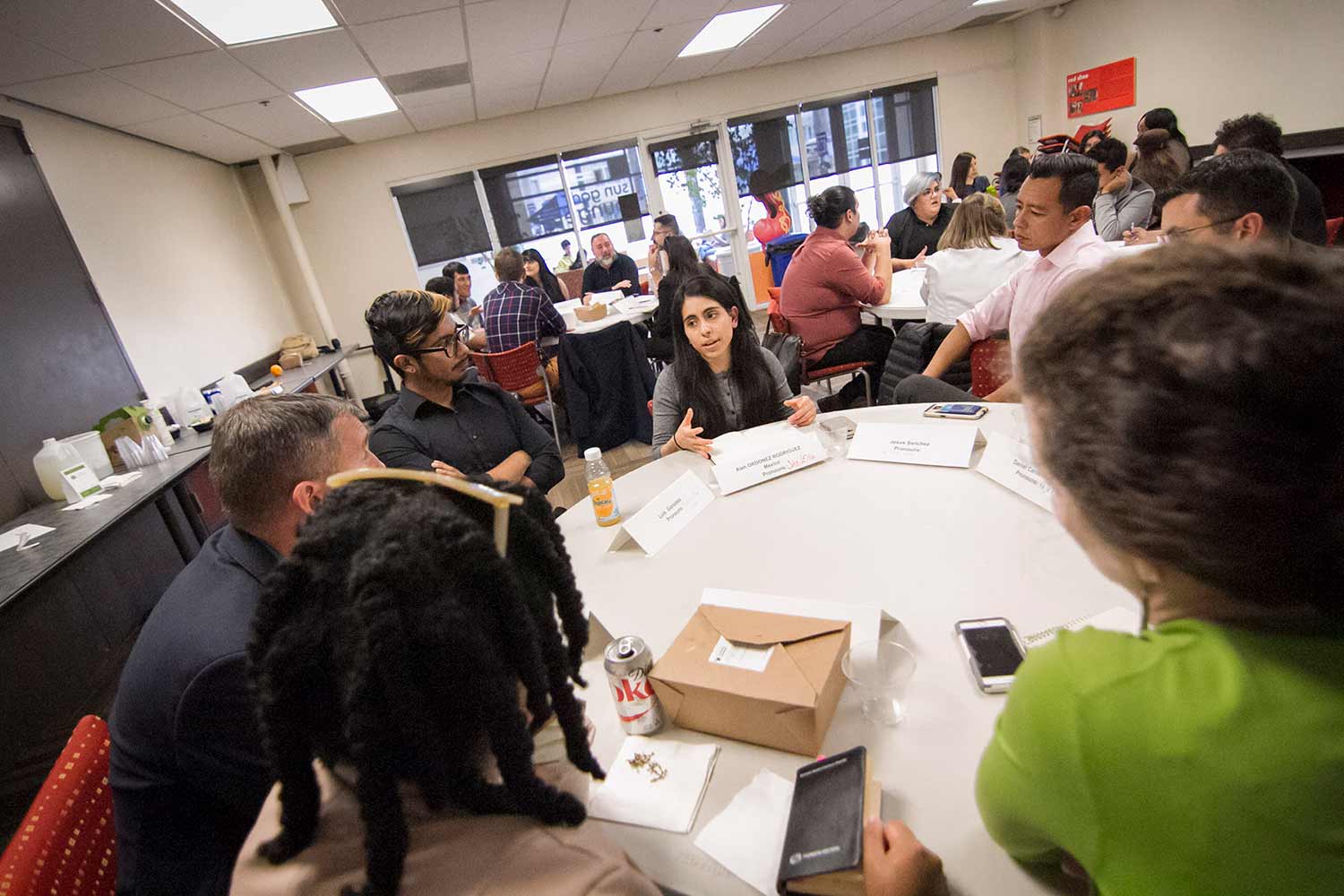
UC San Diego hosted Latin American delegates for a discussion about advancing civil and economic rights for LGBTQIA+ people across the globe. Photos by Erika Johnson/UC San Diego Communications
A Cross-Cultural Journey to Improve Human Rights
Latin American delegates visit UC San Diego to learn about campus LGBTQIA+ inclusion efforts
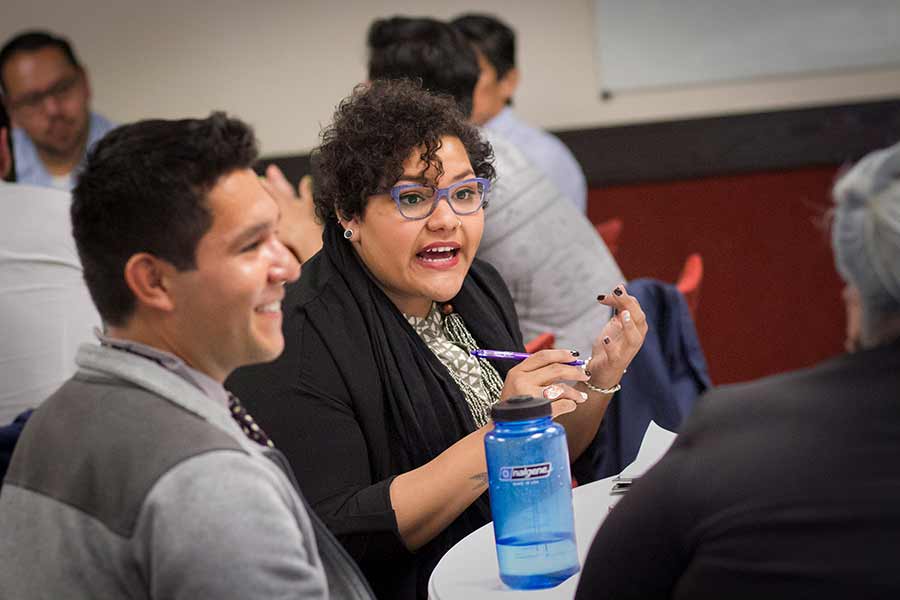
UC San Diego students and staff staff, including karla m. zabaleta hinojosa from the LGBT Resource Center, shared information about the campus’s inclusion efforts.
How do the lives of transgender youth compare at UC San Diego with universities in Guadalajara, Mexico? How do the intersections of race, gender and sexual orientation contribute to identity and cultural production in different parts of the world? Social justice leaders from Chile, Peru, El Salvador and other Latin American countries discussed these topics and more with UC San Diego students and staff on May 11 as part of the International Visitor Leadership Program led by the U.S. Department of State.
San Diego was the last stop on the national delegation visit that included trips to Washington, D.C., Rochester, New York and Montgomery, Alabama. UC San Diego was chosen as a host because of the campus’s innovative efforts to support LGBTQIA+ (lesbian, gay, bisexual, transgender, queer, intersex, asexual/aromantic and other emerging communities) students and the university’s culture of inclusion. The goal was to offer an opportunity to connect global leaders with local counterparts on advancing civil and economic rights for LGBTQIA+ people across the globe.
“I found it really interesting how everybody brought their own perspective,” said Luis Gonzalez, a fourth-year student at UC San Diego who attended the discussion. “There are people that still think that members of the trans community and the queer community should be ostracized, or that being queer and/or trans isn’t right. However, I discovered there is a transnational struggle against that kind of mentality.”
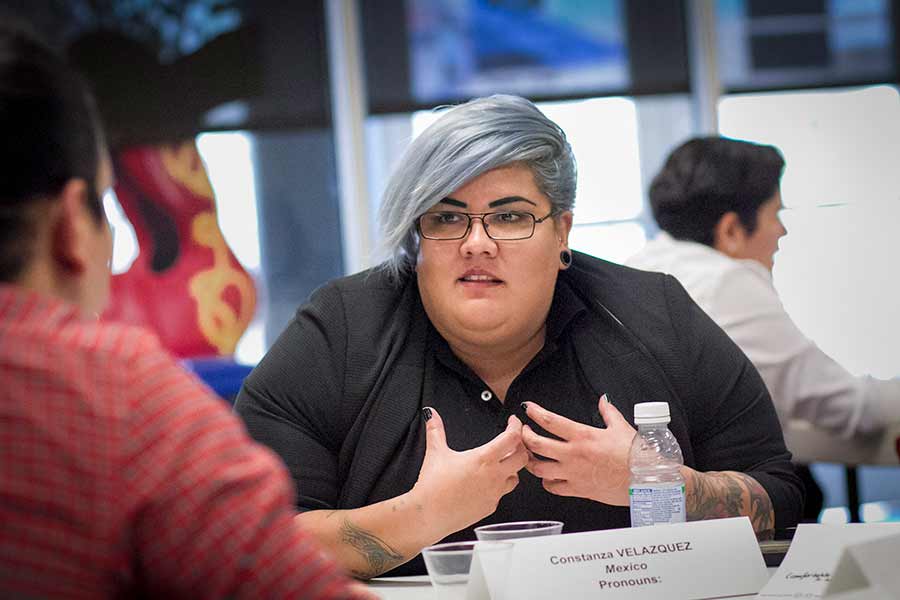
Numerous roundtables were formed to foster conversations about topics ranging from intersectionality to Afro-Latinidad identity and transgender inclusion.
This is the first time such a visit has occurred at UC San Diego. The connection was made possible through the San Diego Diplomacy Council, the local branch of a national network dedicated to building global relationships and expanding mutual understanding by arranging professional, educational and cultural exchanges.
“I found the discussion to be very interesting and rich, learning different points of views and perspectives,” said Alehí Ordóñez Rodríguez, executive director of the Strategic Litigation on Sexual and Reproductive Rights program located in Mexico. During the dialogue, Rodriguez shared the challenges of legal recognition of gender identity in Mexico. Formerly, individuals looking to change their gender were required to go to court, incurring expensive fees; after recent advances, there is now a simple form to be filed that is free of charge, and can be submitted multiple times if needed.
Numerous roundtables were formed to foster conversations about topics ranging from the importance of cultivating dialogue across generations within the LGBTQIA+ community; the mestizo identity and how it has been misconstrued to form a one-dimensional race; the lack of resources and education provided to sex workers in Latin America, often chosen as a pathway to survive; intersections of Afro-Latinidad and LGBTQIA+ identities; and how we arrive at social norms and policies, and the legal processes that bind them.
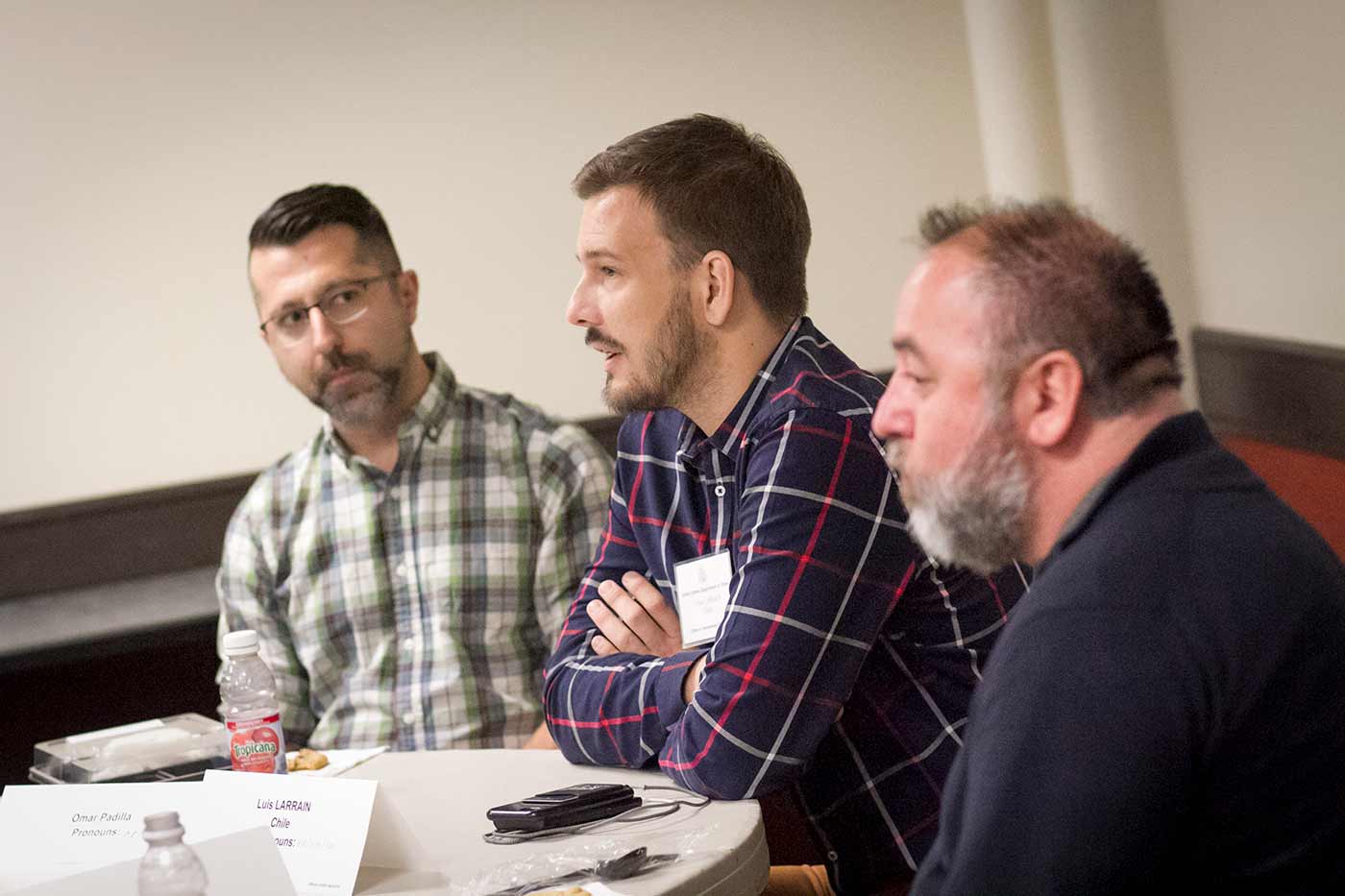
Social justice leaders from eight Latin American countries, including Chile, Peru and El Salvador, shared their perspectives and strategies for positive change.
UC San Diego staff and students from the campus LGBT Resource Center and Raza Resource Centro shared insights on how LGBTQIA+ students are supported on campus through the network of Campus Community Centers within the framework of the university’s Office for Equity, Diversity, and Inclusion. Among the discussions, it was noted that when students apply to the University of California, they are now able to share their gender identity and sexual orientation, thereby being included and validated from the very beginning. When they arrive on campus, college deans acknowledge their community during orientation. New first-year and transfer students are invited to an LGBTQIA+-specific orientation.
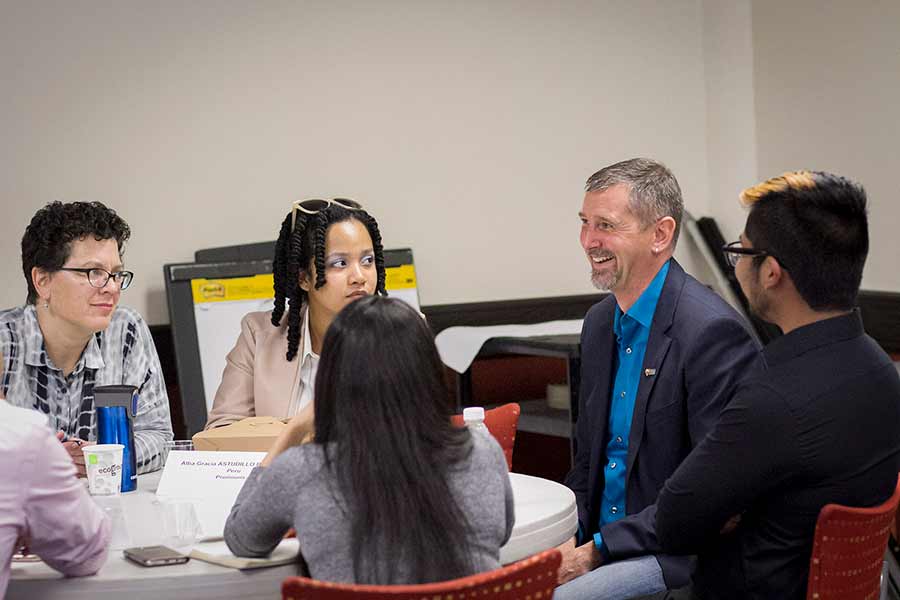
UC San Diego students and staff, including Shaun Travers, director of the LGBT Resource Center, shared information about the campus’s inclusions efforts.
Daniel Cardenas, student program coordinator at the UC San Diego Raza Resource Centro, discussed how he addresses student identity concerns. He often suggests reflecting on history when thinking about ideas of normalcy. For instance, how was the notion of gender conceived of among indigenous people? Thinking critically about these topics can lead to a larger perspective and a better understanding of how norms evolved.
For Opal Gomez, a student at UC San Diego, the event offered a unique chance to talk to international leaders about social and health conditions in their country as it relates to LGBTQIA+ communities. A public health and psychology double major, Gomez is interested in working with LGBTQIA+ and Latinx communities as a sexual health counselor or promoting diabetes education after graduation.
“I’ve never attended an event like this before,” said Gomez. “I was part of the discussion about university strategies for inclusion in Guadalajara, Mexico and San Diego. Finding parallels between students in both countries and how we can build coalitions with each other to support each other’s work was very meaningful.”
Share This:
You May Also Like
Stay in the Know
Keep up with all the latest from UC San Diego. Subscribe to the newsletter today.


